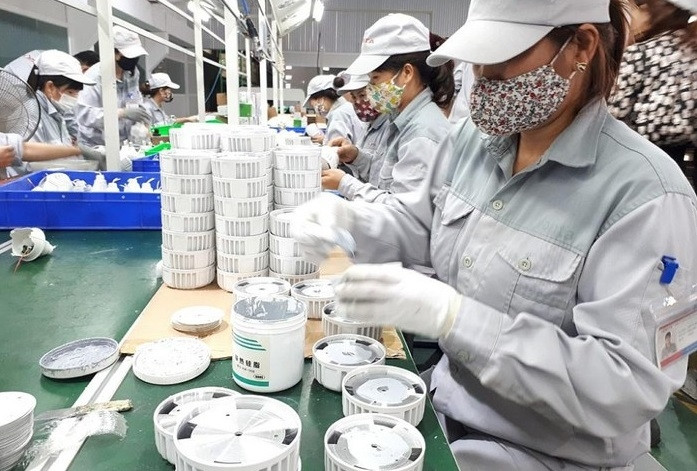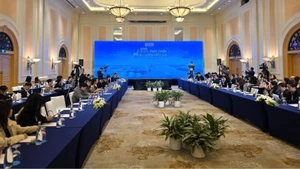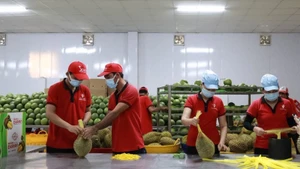Vietnam’s supporting industries have been increasingly growing and gradually participating in the global supply and value chains. However, according to experts, the current development of Vietnam’s supporting industries has yet to match its potential. Specifically, the supporting industrial products manufactured domestically are not diverse in types, designs or patterns, alongside low quality and high prices. In addition, the scale and competitiveness of Vietnamese supporting industrial enterprises remains limited, leaving them without enough strength to participate more deeply in the global production and supply chains. Meanwhile, the country’s technology capability has still not yet caught up with that of others in the region, which has caused the localisation rate of industries to remain low. Many of Vietnam’s strength industries, such as electronics, garments & textiles, leather & footwear, automobiles and motorbikes, are still heavily dependent on imported raw materials, making production both passive and costly.
The Government recently issued Resolution No. 115/NQ-CP mapping out many important solutions to promote the development of supporting industries. The resolution stresses the need to build, complete and effectively and synchronously implement specific mechanisms and policies to develop supporting industries, as well as effectively arranging and mobilising resources for the implementation of these policies. In addition, it proposes continuing to implement interest rate incentives for supporting industrial enterprises and the manufacturing industry, while forming and developing domestic value chains through effectively attracting investment and promoting linkages between Vietnamese firms and multinational ones. Other solutions include the building of concentrated supporting industrial parks to foster sectoral linkage clusters, as well as the development of material industries to increase self-reliance in terms of raw materials for production, reduce dependence on imported sources, and improve the domestic added value and the competitiveness of Vietnamese products in global value chains.
To strengthen the capability of supporting industrial businesses, it is necessary to build and effectively operate technical centres assisting regional and local industrial development, aimed at enabling supporting industrial enterprises to prioritise innovation, research & development (R&D), and technology transfer, while improving productivity, product quality and competitiveness, thus creating opportunities to deeply participate in the global production chains. In addition, priority will be given to designing preferential support mechanisms and policies in terms of finance and infrastructure, and to improving the capabilities of technical centres assisting regional industrial development. These centres are tasked with connecting local centres to form a general ecosystem of technology and industrial production.
The aforementioned solutions, if implemented effectively, will surely create a breakthrough for supporting industries in the coming time, contributing to realising the goal set in Resolution 115/NQ-CP that by 2030, supporting industrial products will meet 70% of the demand for domestic production and consumption, while accounting for about 14% of industrial production value.
















